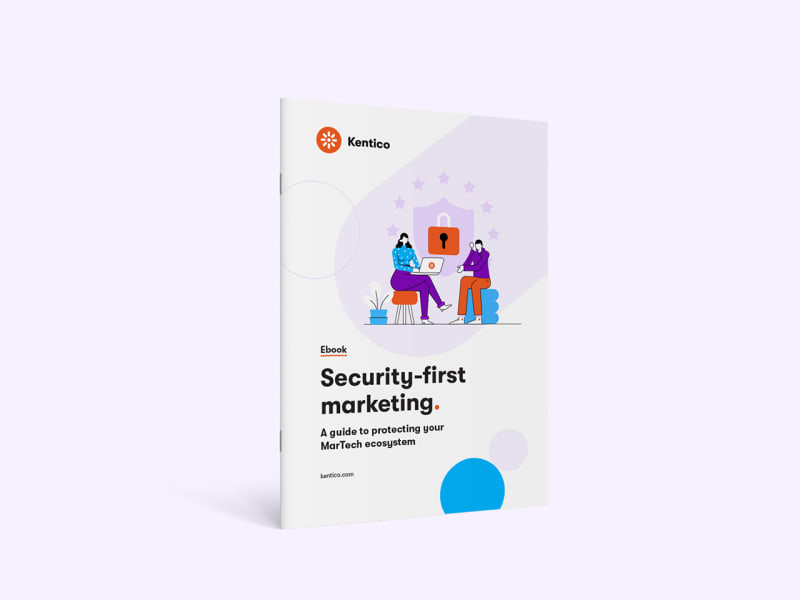Join us for an insightful discussion with industry experts on the importance of protecting customer data and ensuring compliance with evolving data privacy laws.
With regulations constantly evolving and new technologies reshaping industries, compliance is more important than ever. Businesses need to stay ahead of changing rules, manage risks, and maintain trust—all while keeping operations running smoothly.
To explore these challenges and solutions, we’ve brought together a panel of experts to share their insights, experiences, and compliance best practices.
Understanding what compliance really means
Data privacy compliance involves adhering to laws designed to protect personal information, ensuring it’s securely handled, and respecting individuals' privacy rights. This includes understanding compliance regulations, securing data, obtaining consent, being transparent about data usage, and giving individuals control over their information. Regular audits help maintain compliance and ensure these practices are followed.

“Website owners should conduct thorough privacy audits to identify where personal data is collected, stored, and processed. They should keep updated privacy policies visible on their sites, implement clear cookie consent banners, and establish data retention and deletion protocols.”
Data retention and deletion protocols are rules about how long personal data should be kept and when it must be deleted to minimize the risk of misuse. These requirements can vary by industry—for example, law firms often follow different digital data management standards than healthcare providers.

“It’s also critical that data collection complies with legal requirements, as per ICO and GDPR guidance, and that preference centres and privacy policies are simple to understand.”
The ICO and GDPR provide guidelines on how organizations should collect, store, and use personal data to prevent misuse or data breaches. Ensuring that preference centers and privacy policies are simple to understand helps foster trust and compliance, giving individuals clear choices about their data, such as opting in or out of marketing communications.

“Other key steps to compliance include implementing clear cookie consent banners, encrypting sensitive data, and ensuring third-party vendors comply with regulations.”
Businesses must ensure third-party vendors comply with data privacy laws by conducting due diligence, setting clear contracts, and regularly auditing their practices. Data processing agreements (DPAs) help enforce security and compliance, but businesses remain accountable for any breaches, making proactive oversight essential.
Data privacy: Reviews and responsibilities
Clear understanding of data privacy roles is essential for compliance. The data controller, data processor, and data protection officer (DPO) each have distinct responsibilities that must be clearly defined to avoid mistakes and prevent legal issues.
The data controller determines the purposes and methods of processing personal data and ensures compliance with relevant laws. The data processor handles data on behalf of the controller, following their instructions and ensuring data security. The DPO oversees compliance, ensuring individuals' data rights are respected.
By defining these roles clearly, organizations can manage data properly, reduce risks, and maintain compliance with regulations.

“Website owners, as data processors, must collaborate with in-house Data Protection Officers (DPOs) or legal counsel to fully understand their responsibilities in protecting customer data. Regular processes for reviewing retained data are essential, ensuring data is deleted when no longer needed.”
Holding onto data longer than needed increases security vulnerabilities and potential legal consequences. Regularly reviewing and deleting retained data reduces the risk of breaches, ensures compliance with data privacy laws, and minimizes unnecessary data storage.
Technology’s role in simplifying compliance
Technology plays a critical role in streamlining compliance by automating key processes. It helps businesses track and manage personal data more efficiently, ensuring it's collected, stored, and used according to regulations.
For instance, consent management systems allow businesses to obtain and track user approvals, while secure data storage and encryption protect sensitive information. Technology also simplifies regular audits, risk identification, and quick updates to privacy policies. Automating these tasks reduces human error, saves time, and helps maintain consistent compliance.

“Digital experience platforms like Kentico can simplify compliance efforts by offering built-in tools to manage user consent and automate data subject requests, supporting data tracking, data storage, and policy enforcement. They should be able to play nice with market-leading tools like OneTrust to respect the action of opting in or opting out of tracking. Leveraging these types of functionalities helps ensure that your website remains compliant while reducing the burden of manual privacy management.”
However, ensuring compliance requires proper configuration and oversight. While sophisticated DXPs may offer the necessary tools to support compliance, businesses must actively manage data governance, establish consent policies, and monitor compliance processes. Organizations must configure and maintain workflows to meet specific legal requirements, such as GDPR or CCPA.

“Platforms like Kentico simplify compliance with built-in consent management, user data export/ deletion tools, and secure role-based access. Then Kentico partners like us help businesses navigate requirements, leveraging Kentico’s audit logs, encryption, and integrations to create privacy-first digital experiences.”
Customer data: The importance of transparency
Transparency is essential to building trust and maintaining strong relationships with customers. When businesses openly share how they collect, use, and protect personal data, it empowers individuals to make informed decisions about their privacy. It's not just about following the rules; it’s about showing customers that their data is in safe hands.

“When utilizing data collection tools like surveys or newsletter sign-ups in Kentico, transparency is key. Clearly communicate how data is used, stored, and protected.”
Clear communication helps businesses avoid misunderstandings, legal issues, and strengthens their reputation as trustworthy organizations. Ultimately, transparency creates a sense of security, ensuring customers that their rights are respected.
The power of user control
User control gives individuals power over their own data. When people feel they have control over what information they share and how it’s used, they’re more likely to trust a business. Allowing users to manage preferences, update information, or opt out of certain data uses shows respect for their privacy and autonomy.
This kind of control reassures customers that their data is handled in a way they’re comfortable with, strengthening their confidence in your organization and fostering long-term loyalty.

“Data privacy isn’t just a regulation—it’s a responsibility. Laws like GDPR and CCPA don’t exist to make business harder; they exist because people deserve control. Kentico gives you the tools—consent management, automated compliance tracking—but technology alone won’t make you trustworthy. That’s a choice. The best brands don’t collect data just because they can—they collect it because they should. Audit what you store. Be transparent about why. Give people real control. Because privacy isn’t just a legal requirement—it’s the foundation of trust in the digital age.”
Privacy: a proactive pursuit
Being up to speed with regulations is crucial for protecting your business and customers. Privacy laws are constantly evolving, and staying ahead of them helps prevent costly mistakes or legal penalties. By proactively adjusting to changes, businesses can ensure they remain compliant and avoid scrambling to catch up.

“Stay updated on evolving data privacy legislation, especially considering proposed amendments to UK data protection laws. For insights on potential impacts to marketing activities, organisations like the Direct Marketing Association can be valuable resources.”
A proactive approach also demonstrates to customers that your organization is committed to protecting their data, building trust and confidence. Regularly reviewing policies, conducting audits, and anticipating regulatory changes keeps your business on track and prepared for the future.

"Businesses need to be proactive about compliance, not just reactive. By staying ahead of regulatory changes and embedding privacy practices into their daily operations, companies can build trust with their customers and protect their reputation. A proactive approach to compliance helps businesses avoid risks, ensures they meet evolving standards, and fosters long-term loyalty with their audience."
Looking ahead: The future of compliance
Data privacy laws continue to evolve, and businesses must do the same. Staying compliant isn’t just about avoiding fines—it’s about earning and keeping customer trust. Companies that embrace compliance as a trust-building tool, rather than just a regulatory requirement, will be better positioned for the future. By staying transparent, giving users control over their data, and keeping up with regulatory changes, businesses can transform compliance from a challenge into a competitive advantage.
Are you interested in learning more about the built-in compliance and security features of Xperience by Kentico? Download our free ebook, Security-first marketing.


